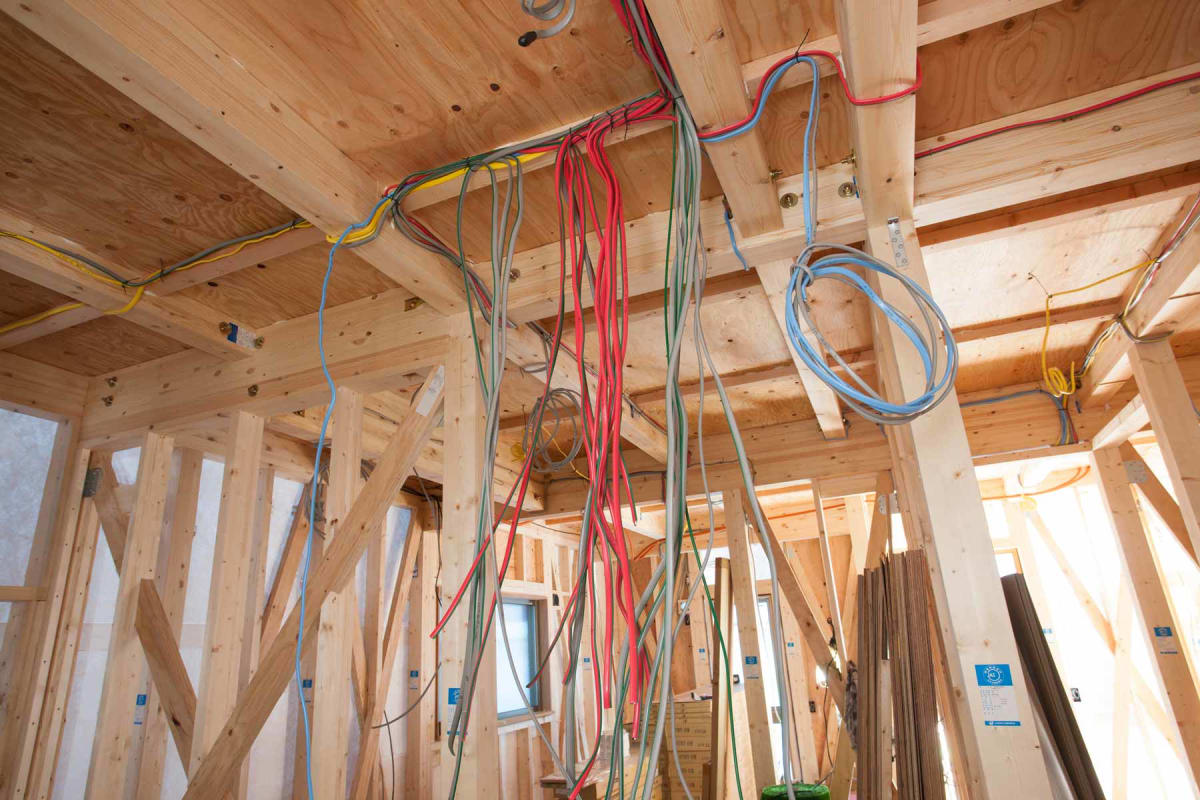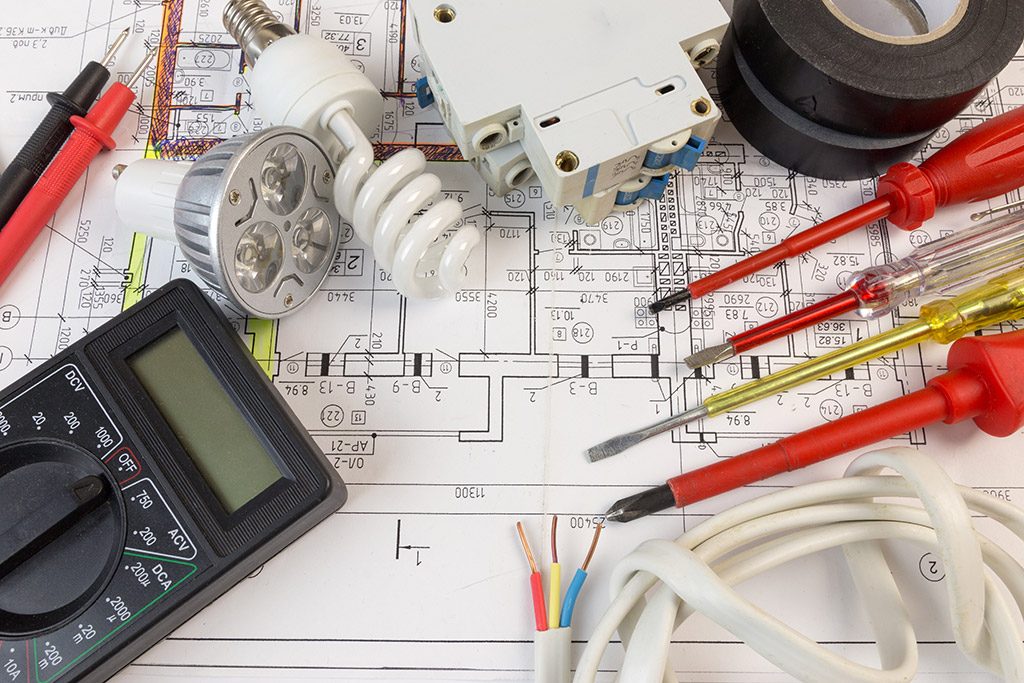Custom-made BRE Electrical Solutions for Reliable and Safe Installations
Wiki Article
Demystifying Electrical Installation: Understanding Codes and Regulations for a Legal and Safe Setup
In the world of electric installment, adherence to codes and laws is extremely important to make certain both validity and security. The complexities surrounding electrical job can be daunting, yet acquainting oneself with the well established requirements is essential to navigating this area with self-confidence. By comprehending the complexities of the National Electric Code and local building regulations, people can guarantee that their installations fulfill needed precaution and remain in conformity with the law. However, the trip to demystifying electrical installment surpasses mere knowledge with policies; it necessitates an extensive grasp of how to carry out risk-free electric techniques properly.Relevance of Electrical Codes
The adherence to electric codes is critical in making sure the safety and security and reliability of electrical installments. Electrical codes work as a collection of criteria and standards that dictate the appropriate layout, installment, and maintenance of electrical systems. These codes are developed to decrease the risk of electrical dangers, fires, and various other safety and security concerns that may develop from damaged electric job.
Moreover, electrical codes are regularly upgraded to integrate brand-new innovations, best techniques, and security measures. Remaining updated with these codes is crucial for experts in the electric market to ensure that their job meets the most up to date safety criteria. Eventually, the importance of electrical codes exists in producing a secure and effective electric infrastructure that profits both individuals and neighborhoods.
Trick Laws for Safety And Security
Several basic regulations regulate the safety and security requirements in electric installations. One essential law is the National Electrical Code (NEC), which gives guidelines for risk-free electric design, installment, and inspection to secure individuals and home from electric hazards. The NEC covers elements such as electrical wiring approaches, grounding, overcurrent protection, and devices setup to make certain a safe electrical system.One more crucial policy is the Occupational Security and Health And Wellness Management (OSHA) criteria, which concentrate on the safety of workers associated with electric installments (BRE Automation Australia). OSHA laws consist of requirements for proper training, safety procedures, and personal protective devices to avoid office crashes and injuries
Furthermore, the International Electrotechnical Commission (IEC) standards intend to integrate electrical installation regulations on an international range. These requirements address problems like electrical tools safety and security, electro-magnetic compatibility, and power effectiveness to promote uniformity and safety in electrical installments worldwide.
Conformity with these crucial laws is vital to make sure the security and legitimacy of electrical installments, securing both individuals and building from the dangers associated with electrical power.
Recognizing National Electric Code
Secret regulations such as the National Electric Code (NEC) provide crucial guidelines for secure electrical layout, setup, and inspection to make sure the protection of people and residential or commercial property from electric risks. The NEC, additionally referred to as NFPA 70, is a thorough set of criteria for electrical setups that are upgraded every three years. It is created by the National Fire Protection Organization (NFPA) and is extensively embraced throughout the United States.The NEC covers different facets of electrical work, consisting of wiring techniques, grounding, overcurrent see this website protection, and tools installation. It aims to secure people and home by dealing with prospective threats related to electric systems. Conformity with the NEC is normally enforced by regional authorities having territory (AHJs), such as building code officials and assessors.
Understanding the NEC is important for electric professionals, developers, and inspectors to make sure that installments satisfy the necessary security needs. By adhering to the NEC guidelines, specialists can help avoid electrical mishaps and make sure the integrity of electric systems in domestic, commercial, and commercial settings.

Compliance With Local Structure Codes
Recognizing and adhering to regional structure codes is important for making certain the safety and conformity of electric installations within a certain jurisdiction. These codes detail specific demands for electric installations, such as the type of electrical wiring to be used, placement of electrical outlets, basing approaches, and load capabilities.
When it involves electrical setups, failing to follow regional building ordinance can cause major repercussions. Non-compliant installations may present safety and security risks, boost the threat of electric fires, and cause pricey penalties or legal issues. Furthermore, insurer may refuse to cover damages arising from installations that do More Info not meet regional building ordinance demands. Consequently, it is essential for electrical contractors and specialists to remain informed about and strictly stick to the local building ordinance appropriate to their projects.
Guaranteeing Safe Electric Practices
Practicing rigorous adherence to established safety methods is critical in the area of electrical installments to reduce possible dangers and ensure the health of individuals and homes. Safety in electric work includes various facets, starting with the appropriate training of personnel entailed in installation, upkeep, and repair. It is crucial to comply with supplier directions diligently when managing electrical parts and equipment. Before starting any type of job, it is imperative to carry out an extensive risk evaluation to determine possible dangers and implement preventative measures. Using personal protective tools (PPE) such as insulated handwear covers, shatterproof glass, and non-conductive shoes is non-negotiable to safeguard versus electric shocks and arc flashes. Routine tools evaluations, screening, and maintenance timetables are indispensable to find and rectify faults before they rise right into safety risks. In addition, adherence to proper lockout-tagout treatments throughout maintenance tasks is critical to stop accidental energization of circuits. By prioritizing risk-free methods, electric setups can work successfully while decreasing Continue the likelihood of accidents or damage.Verdict
In final thought, adherence to electric codes and guidelines is important for guaranteeing the safety and security and legitimacy of electrical installments. Comprehending the National Electric Code and compliance with regional building codes are crucial for a risk-free setup. By adhering to these guidelines and exercising safe electric practices, people can avoid possible risks and ensure the appropriate performance of their electrical systems.Report this wiki page